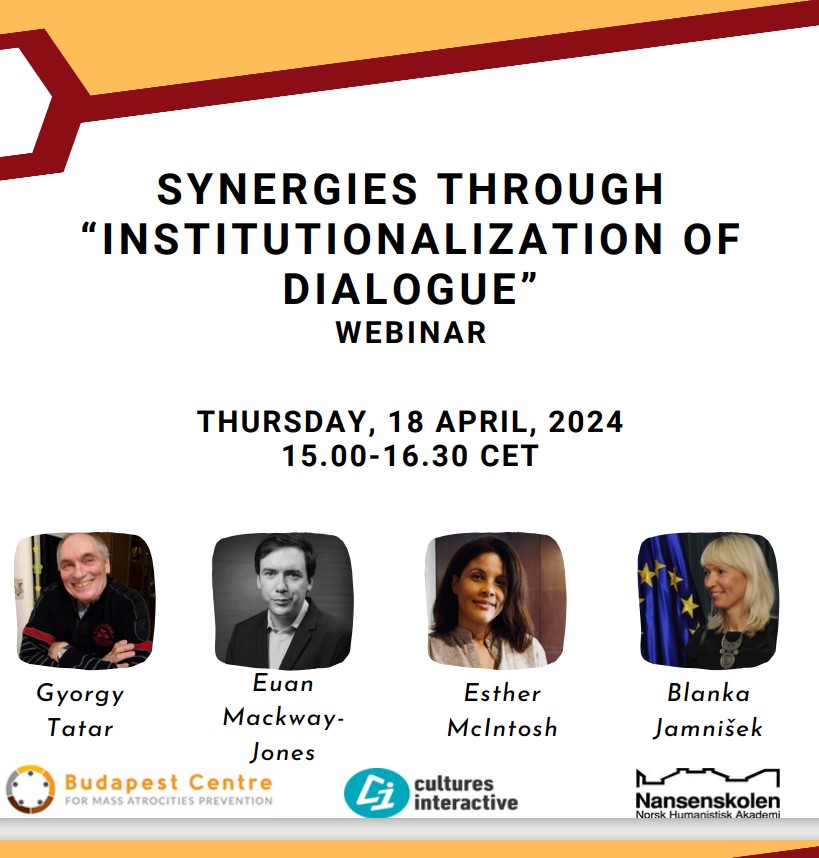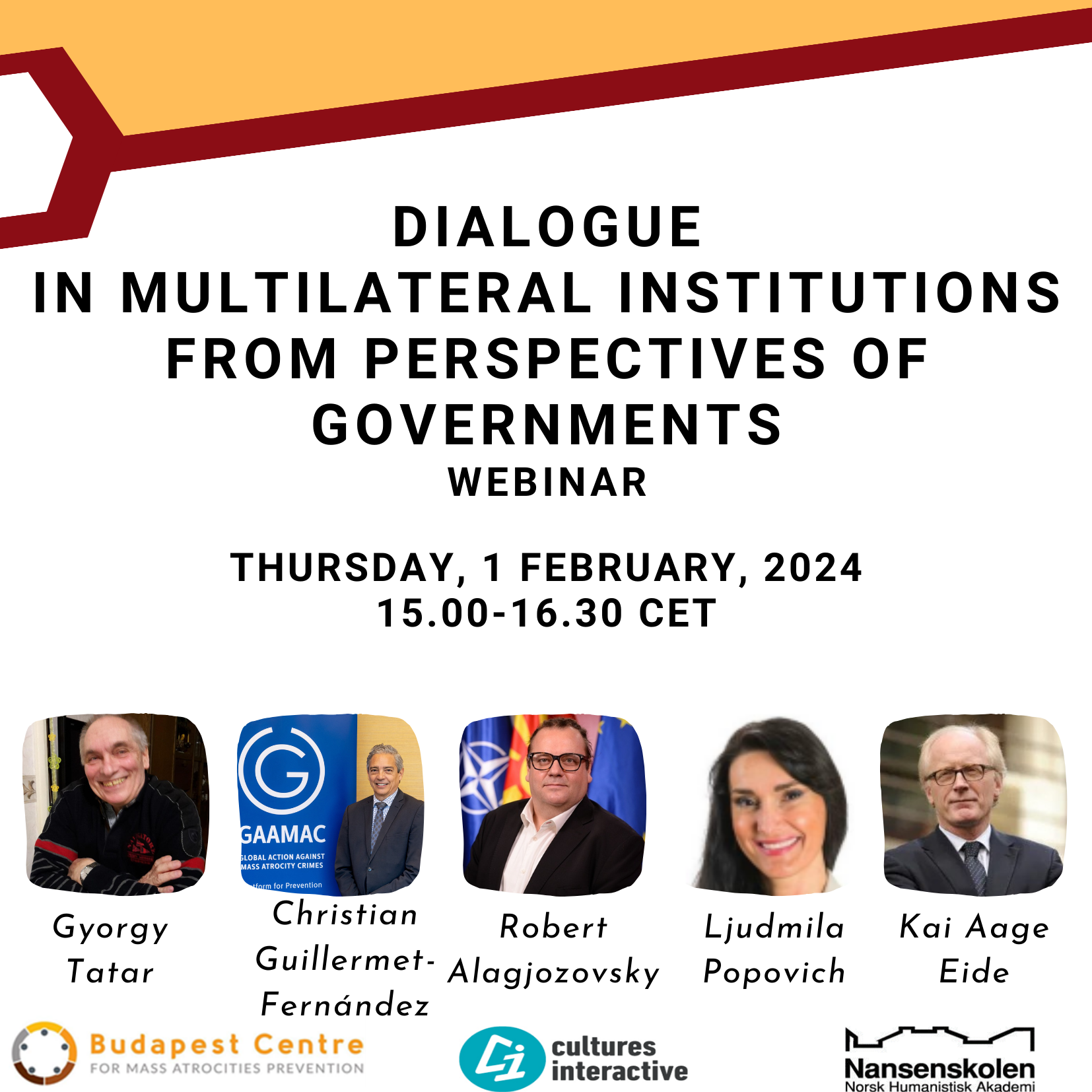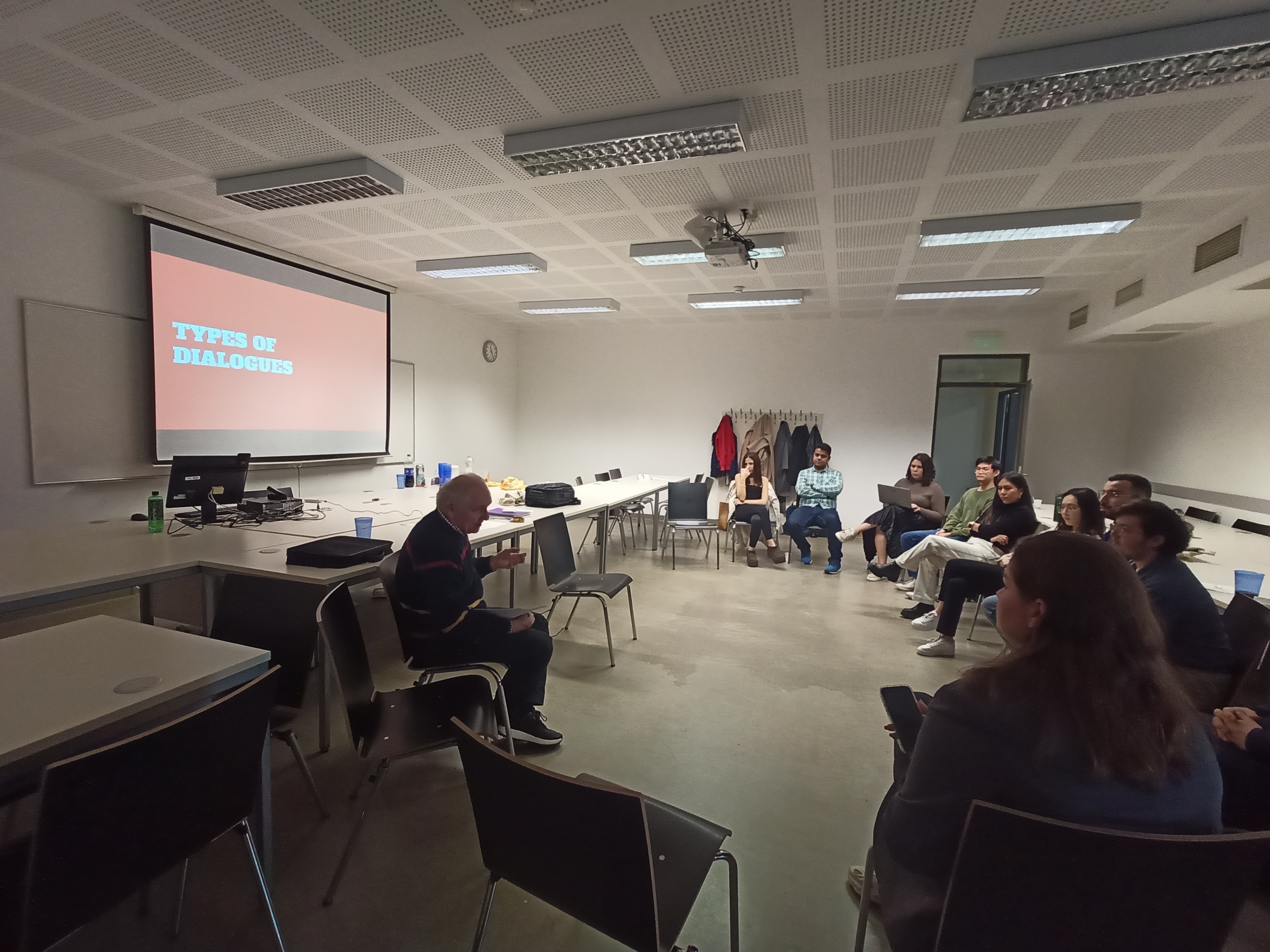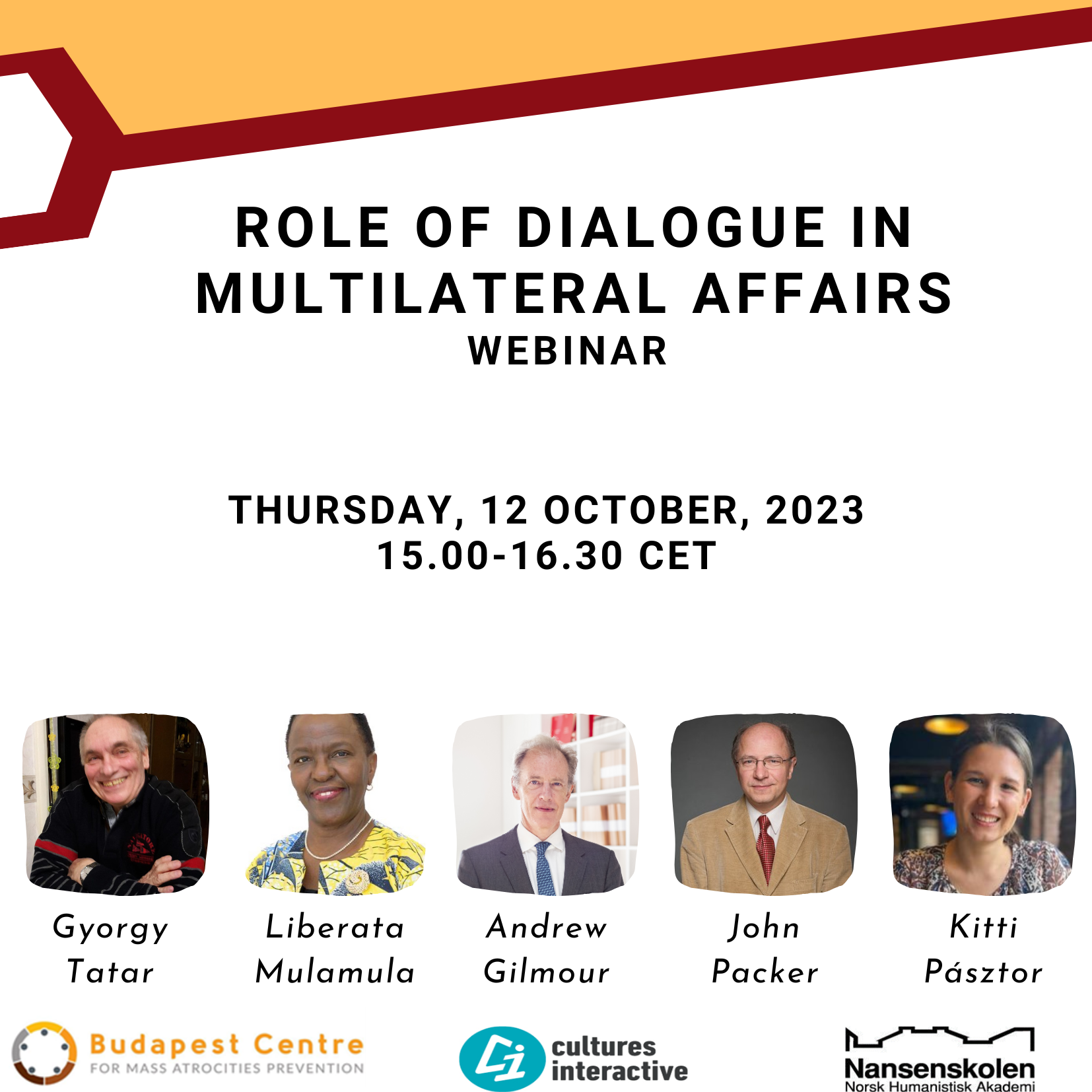- |
- Category: Events

- |
- Category: Events
The interview is part of our Initiative for regular and consistent deployment of dialogue in international and national decision-making mechanisms and education. Prominent practitioners share their views and experiences in that context.
Mr. Vollebaek presents concrete examples showing the increased need and significance of dialogue for effectively addressing contemporary security challenges. To learn the details please click here.
- |
- Category: Events
The record of the webinar can be watched here:
- |
- Category: Events
During this event senior governmental officials will share their views on how dialogue could support the decisions in multilateral organizations to sustainably address global challenges and respond to risks of mass atrocity crimes.
Please click here to access the invitation!
Please click here to access the registration link! The webinar link will be sent to your email address before the event.
- |
- Category: Events
Inspired by the trainings of the Nansen Center for Peace and Dialogue, the Budapest Centre for Dialogue and Mass Atrocities Prevention completed its first interactive and practice oriented skills building in facilitation of dialogue being a tool for managing diversities, preventing and handling radicalization and violent conflicts. The three four hour sessions took place in cooperation with the College for Advanced Studies of Diplomacy in Practice at the Corvinus University of Budapest.
Based on the positive feedback received from the participants, the Budapest Centre will continue its skills building activities and tailor the agenda of the sessions to the needs of students, political activists and businesspersons with the view to increase their potentials for engaging in communication despite conflicting views.
- |
- Category: Events
The record of the webinar could be watched .
The updated documents on the „Alliance for Dialogue” and „Institutionalization of Dialogue” you may read here.
- |
- Category: Events
Please find the new registration link for today's webinar, Role of Dialogue in Multilateral Affairs, here.
The link for the meeting will be sent to you shortly after your registration.
- |
- Category: Events
During this event former senior officials in the UN, OSCE and ICGLR will share their views and experience in using dialogue for addressing sustainably the challenges, in particular the pursuit of human rights and the risks of extreme crimes when shaping an inclusive multipolar world and multilateral system.
Please click here to access the invitation!
Please click here to access the registration link! The webinar link will be sent to your email address before the event.









